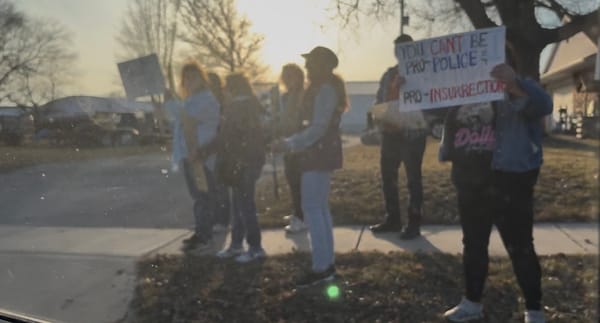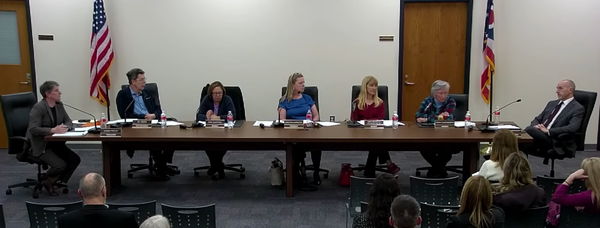“One-Person, One-Vote” Is The Cornerstone of Our Elections, Rank Choice Voting Could Change That.
By Sandie Zimmerman
Rank Choice Voting, or “RCV,” is creeping into many states through the backdoor, by rolling into cities, towns and villages. Using Local Elections to try out RCV, the initiative seeks to bring it to the entire state. Recently, Ohio has been targeted for this complex method of voting.
According to Honest Elections, the RCV process fundamentally changes elections. Under RCV, voters are asked to rank multiple candidates rather than vote for a single person. If no candidate wins a clear majority, the one with the fewest first-place votes is eliminated and his or her choice second-place votes are counted. If a voter did not list a second choice, that ballot is labeled “exhausted” and is thrown out. This has led to the creation of the term “Trash-Can Ballots.”
In the RCV process, ballots thrown out are eliminated from the final count. According to the RCV process, if 100,000 ballots are tallied in the first round and there’s no clear winner, the tabulation goes to a second round. If 10,000 voters choose only one candidate to rank on the ballot, that ballot may also be thrown out as exhausted, then the total ballot count is adjusted down to 90,000 ballots. This process continues until a single candidate wins a majority of the remaining votes.
According to some critics of the process, RCV may be costlier than the traditional voting method. Longer hours and more poll workers would be necessary to complete the intricate task of multiple tabulation and RCV would bring the extra cost of educating the public on this new form of voting.
Recently, Alaska spent millions educating their citizens but still had spoiled ballots from errors. Those ballots were tossed out before the first tabulation and never counted.
For RCV to be rolled out, more detailed complex algorithms must be written and implemented in order to calculate multiple ballot tabulations. This would also increase the need for more expensive voting machines that voters already have low confidence in using. RCV is also said to increase the risk of election tampering because it requires a complicated, centralized counting process that can take up to several weeks to complete
According to critics of the process, RCV would increase the possibility of errors through further complicating the process. This method of voting would also make a recount or audit of the vote incredibly difficult. In our current environment, voters are clamoring for a more transparent and simplistic means of voting, where citizen oversight is easily implemented. With RCV, voter confusion may be more likely from the voting process becoming more intricate and involved, leading to ballots not filled out properly. Additionally, processing several tabulations could take longer to count and delays the declaration of a winner for several weeks.
The leading proponents of RCV nationally include FairVote, a nonprofit based in Takoma Park, Maryland. The group includes political activists, educators, and former government officials who launched the group in 1992 in Cincinnati, Ohio. The organization was originally called Citizens for Proportional Representation. The name was changed to FairVote in 2004.
FairVote is one of the biggest proponents of RCV and has been visiting conservative groups throughout the US, to speak on the benefits of using this method of voting. Although FairVote claims to be non-partisan, their organization is funded by various Leftist groups. According to research on InfluenceWatch.com, some of the “FairVote” donors include Election Reformers Network, Action Now Initiative, Laura and John Arnold Foundation and other.
The Election Reformers Network, or ERN, is a pressure group which pushes for changes to the way that elections are conducted in the United States. While the organization describes itself as nonpartisan, it identifies itself as a “proud member of the Bridge Alliance,” a collective of more than 100 activists.
The Action Now Initiative is a center-left advocacy nonprofit created by liberal donors John and Laura Arnold in 2012. It is closely associated with two more grantmaking organizations. The Laura and John Arnold Foundation is a private foundation based in Houston, Texas. The foundation was founded in 2008 by hedge fund manager John Arnold and his wife, Laura.
FairVote’s funders also include The Democracy Fund, a public policy-oriented foundation chaired and principally funded by eBay founder and former chairman Pierre Omidyar. The group of funders also includes theTides Foundation a major center-left grantmaking organization and a major pass-through funder to numerous left-leaning nonprofits.
Local jurisdictions have already moved to repeal RCV when it has been rolled out in their districts including Burlington, Vermont, Ann Arbor Michigan, Aspen Colorado and Pierce County Washington.
According to some reports, San Diego, the eighth largest city in the country, recently considered RCV at the city level. However, the city council rejected the idea, arguing that instituting RCV would “confuse voters, increase election costs, and possibly have unintended consequences.” They’ve joined many other districts to have done the same.
At a time when voter confidence is at it’s all time low, introducing a more complex less transparent process of voting could be disastrous. RCV goes against the very principle of “One-person, one-vote”.




